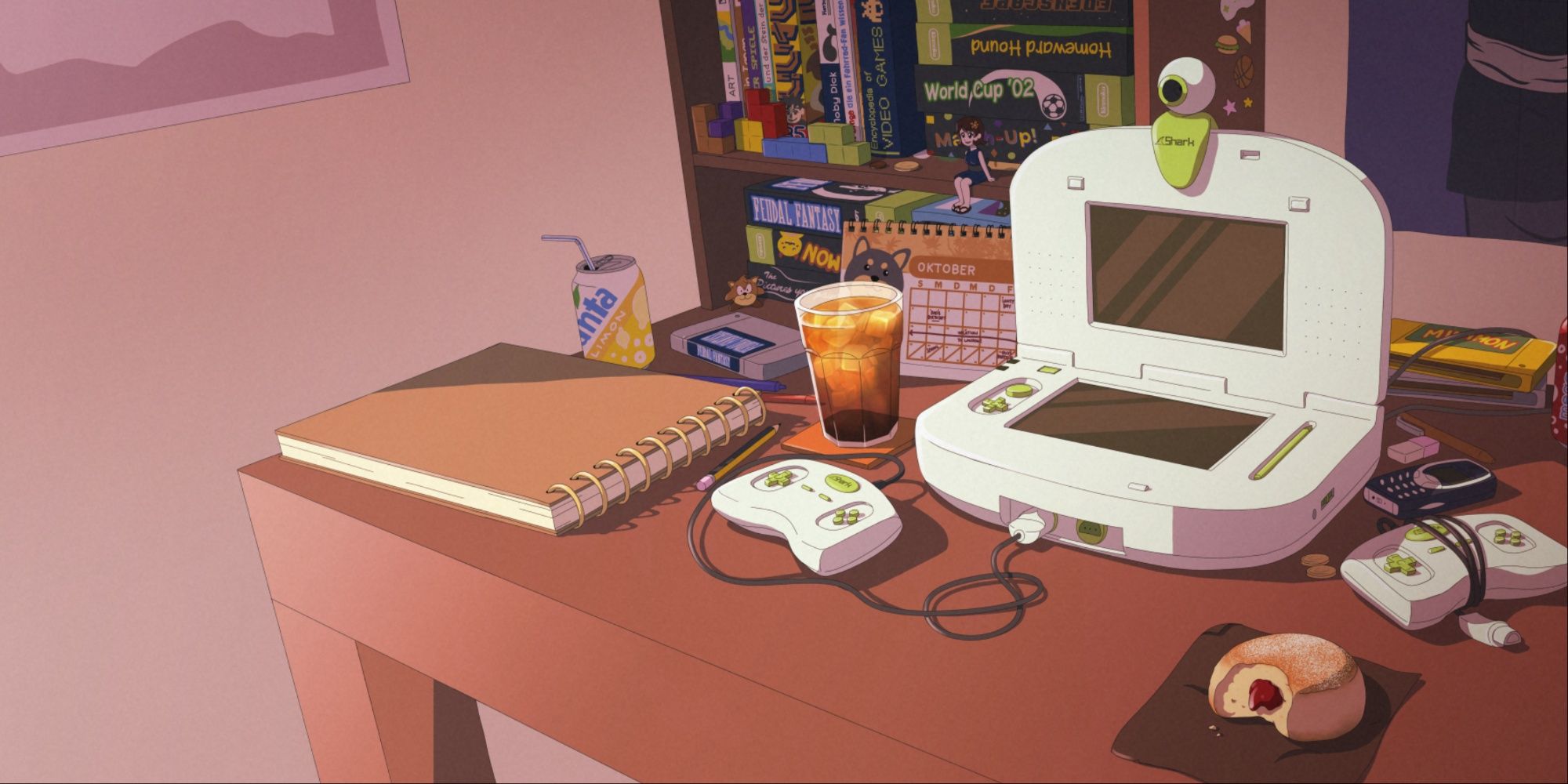Videoverse Is A Heartfelt Early-Internet Nostalgia Trip

I was a sprightly nine year old in 2003 when indie game Videoverse takes place, so I’m a tiny bit shy of the intended audience - those who were already teenagers during the fledgling age of the internet. It has you taking on the role of Emmett, a typical gamer of the early noughties who spends his free time chatting to strangers on the internet, sometimes video calling them using crappy webcams that didn’t come with microphones. If you don’t fondly remember the screeching of a dialup tone, Videoverse likely won’t hit you the way it hits us oldies.
I, a 29 year old, am allowed to call myself an oldie. If you are younger than me, you are not.
In an instant, I’m transported back to my youth. The time of MSN Messenger, GameFAQs forums, invisionboards, and DeviantArt. Bebo and Piczo and stranger danger and slurs. Videoverse does a wonderful job at capturing the entire early-net experience, a crucial developmental milestone for so many of us in our late twenties and thirties. The internet was exploding at an imperceptible rate, quicker than comprehension, and it opened up a whole new world of possibilities.
Much of this is accomplished through the chats you have in-game. From age-appropriate peers to older characters who are more savvy conversationalists, Videoverse nails the nuances of chatting with relative strangers on the internet. The informalisation of language, replete with filler phrases and ‘haha’s’ and the rest of it, and how Emmett will type differently depending on who he’s speaking to is striking.
It feels so real, a testament to the writing that the experience feels heartfelt and believable. We’ve all been Emmett at one point or another, mediating conversations between two third parties, typing and hastily deleting a risky message, and making typos when our minds and hands get out of sync in unbridled panic. These are universal experiences now, but when the internet was so new, it was like acclimatizing to a whole new way of life.
I'm not the only person at TheGamer that Videoverse struck a chord with; it's shown up on the GOTY lists of my colleagues Meg Pelliccio and David Duffy. Spoilers, it's also on mine.
Other than chats, you have forums to navigate. The main gameplay mechanic here is responding to posts, giving a thumbs up to those that are positive and reporting those that break the rules, whether they be profane or just insulting. These forum posts feel so genuine, they could have been lifted from real life. Art posts are responded to with vicious hate and unbridled love in spades, anything homosexual is met with tiresome abuse, and wars between fans of different games rage eternal.
Videoverse is about a dying platform, the eponymous chatroom-slash-art sharing site that Emmett and his friends use to keep in touch. Without Videoverse, it’s harder to stay in touch. These friendships are inherently fleeting, with promises to look out for familiar screen names on other websites sadly realistic about the chances of that happening.
The internet wasn’t as self-consuming and small as it is today - losing friends over the collapse of a platform or losing a password was a very real danger back in the day. Videoverse threw me into a wistful, melancholic state, ruminating on the friendships I made back in the day in the Pokemon and RPG Maker communities, sometimes bridging the gap between tiny forums and MSN. I sometimes Google their old screen names, wondering if they do the same with mine, and I hope that they’re happy, wherever they are.
Videoverse is a game I can easily recommend. It speaks to an age of the internet that, while better off left in the past, was such a touchstone experience for many people. It’s a thought-provoking, heartfelt, nostalgic few hours that makes you interrogate the permanency of friendships and the way we interact with people behind our screens.
In A Retro Mood?Retro Revisit: 10 Classic Games Over 10 Years Old You Can Still Enjoy Today
Check out these amazing 10-year-old games that are still worth a play today!
Posts












